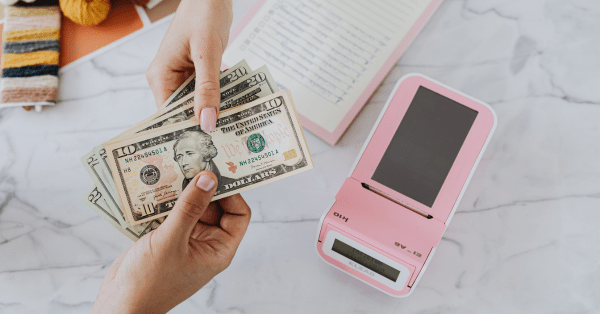Impulse Buying: What Is It & How To Avoid It
In the consumer-driven world that we are living in today, the term “impulse buying” is quite common. This term encompasses the act of unplanned purchases that we make and usually regret later. This practice is driven by emotions and does not involve rational decision-making, which is why it could be dangerous for our budget. This blog will explore impulse buying in detail. It will also determine the psychological triggers and thought processes behind this practice. Moreover, you will also come across some tips that will help you to avoid this trap.
Understanding Impulse Buying

Impulse buying is the tendency to purchase items on an impulse, without rational thinking or earlier planning. It usually happens when a buyer is overcome by emotions, like desire, excitement, and even stress. This behavior can have both short-term and long-term impacts on a person’s finances. This is why it can lead to episodes of guilt and regret.
Triggers Behind Impulse Buying

Various psychological factors contribute to impulse shopping. One major reason is the fear of missing out (FOMO). Sellers and marketers capitalize on this by creating a sense of exclusivity and urgency, pushing customers to make quick decisions. In addition to this, the sense of instant happiness plays a significant role. The happy hormones released in the brain can often lead you to make impulsive decisions. Be it online stores or physical buying, retail environments are specifically designed to promote impulsive behavior. The strategies of product placing and tempting offers often work in the favor of the sellers.
Tips to Avoid Impulsive Buying

Here are some tips that can help you deal with your impulsive buying habits.
1. Make A Budget
Create a clear monthly budget that includes your necessary costs and unnecessary spending. This will help you to remain mindful of the limits of your budget. Hence decreasing the probability of unintentional buying.
2. Create A List
The importance of this cannot be emphasized enough! Before heading to the store or browsing online, make a list of things you truly require. Adhere to this list and try not to deviate from it unless it’s absolutely necessary.
3. Follow The 24-Hour Rule
Whenever you feel the urge to purchase something on impulse try to give yourself a 24-hour cooling-off period. After this cooling-off period, if you are still interested in this item, it might be worth considering.
4. Prefer Using Cash
Paying with cash can have a great impact on the act of spending. This tangible experience gives you a visual reminder of money leaving your hands. As a result, impulsive purchases can significantly decrease.
5. Online Shopping Trap
While online shopping offers comfort and convenience it also increases the chances of impulsive buying. To avoid this trap, refrain from saving your credit card information online and use site blockers or apps that delay the checkout process.
6. Be Mindful
Prior to making a purchase, pause and assess your feelings. Are you buying out of need or because of an emotional trigger? Mindfulness can assist you to make more sensible choices.
7. Set Financial Goals
Having pre-set financial goals like saving for a trip or paying off debt can act as an incentive to save more and spend less. Hence, whenever you are tempted to buy something, remind yourself of your financial goals and responsibilities.
Conclusion
Impulsive buying can seem to be difficult to deal with. However, if you take the right steps, you can stay thoughtful of your purchases and avoid any spending disasters. If you have any other tips that can help to avoid impulse buying, make sure to share them with us!


Pingback: Shopaholic? Here Are 10 Financial Tips That Can Save You From Overspending - Buying Nerd
Pingback: Are There Any Temu Coupons For Existing Customers? - Buying Nerd